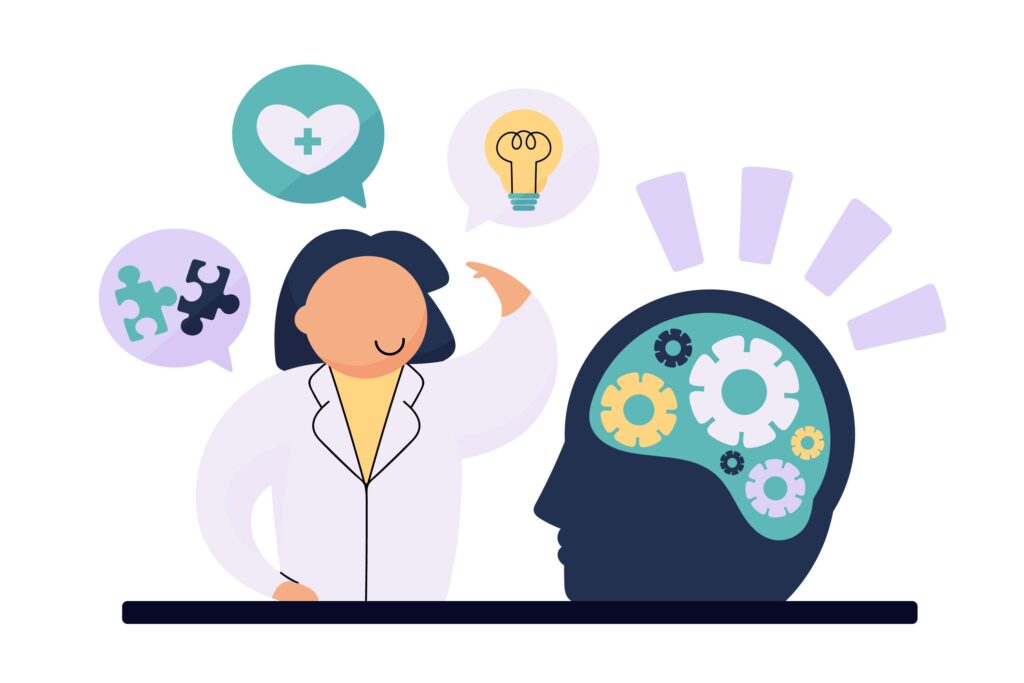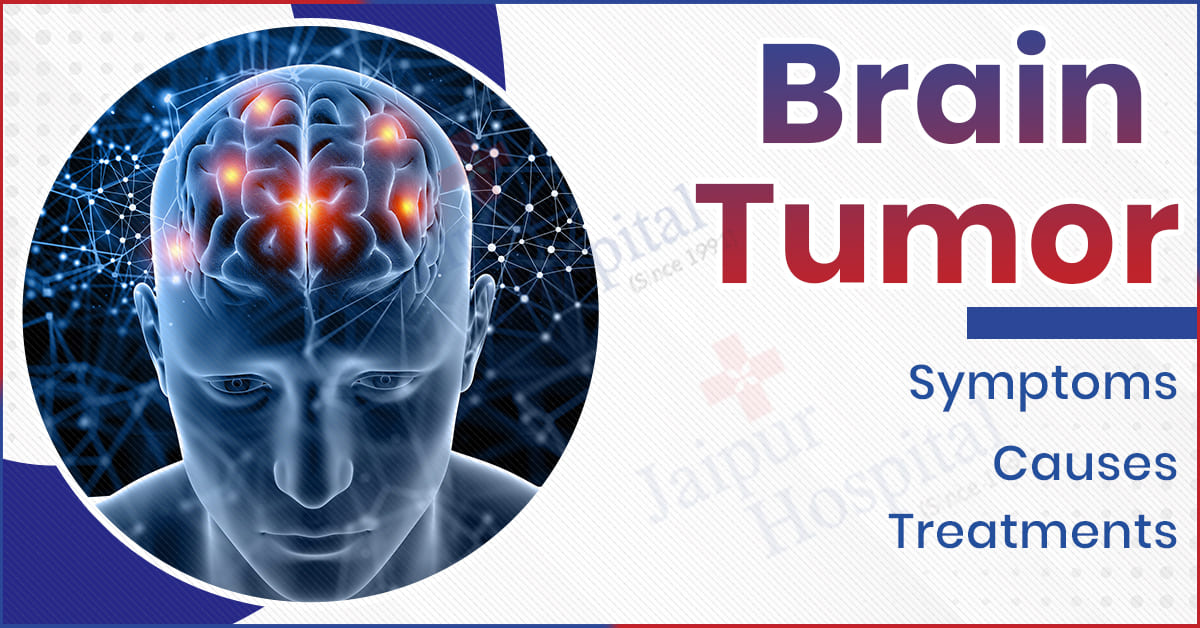Introduction
A brain tumor means any sort of abnormal growth within the brain, disrupting the normal functioning of the affected area and the wellness of the person. These are the most dreaded conditions, which may arise as benign or malignant tumors, and fast action is vital for a good prognosis.
Knowing the signs and symptoms of brain tumors, the most common causes of brain tumors, the diagnosis of brain tumors, and brain tumor treatments will help in getting the required medical attention on time. In this discussion, we shall go into exhaustive detail regarding these issues and shine some light on this condition and its treatment.
What is a Brain Tumor?
The definition of a brain tumor refers to the abnormal and uncontrolled growth of cells, either within the brain or in the tissues surrounding it, such as the meninges, nerves, or glands. Tumors may be benign or malignant and, through pressure on adjacent areas, may interfere with the proper functions of the brain, which include sending nerve impulses and controlling essential body functions.
What are the signs and symptoms of brain tumors?
Symptoms of a brain tumor can vary depending on the size, position, and pace at which the tumor grows. Some symptoms appear very slowly, while others can manifest quickly and very intensely. Early recognition of these signs helps in faster diagnosis and treatment. Below are the more common signs and symptoms of brain tumors:
- Headaches: One of the chief brain tumor symptoms is frequent headaches that grow to startle intensity in the early morning hours or alerting intensity with physical activity.
- Nausea and Vomiting: Whenever unexplained nausea and vomiting happens, especially unrelated to food poisoning or any other illnesses, it might insinuate an increased pressure in the brain due to presence of a tumor halfway.
- Seizures: A sudden convulsion or seizure with no prior history should tell men and women that they have brain tumors.
- Vision Problems: There could be sudden blurring of vision,double vision or a partial loss of vision that occurs with brain tumors because the optic nerves or the areas associated with them may get damaged.
- Hearing Issues: Can be due to the tumors near the auditory nerves causing hearing loss, tinnitus, and hence a difficulty in processing sounds.
- Cognitive or Personality Changes: These disturbances with concentration, with memory loss and confusion, may well have been due to brain tumors interfering with particular cerebral functions.
- Problems With Balance and Coordination: One might have problems with walking and clumsiness. Paralyzed Coordination has perhaps fallen into affecting the cerebellum or some other region involved with motor activities.
- Weakness and Paresthesias: A brain tumor might even cause weakness with paresthesias, usually on one side of the body.
You Can Read Also: Stop Vomiting in Pregnancy Instantly: Home Remedies You Can Try
What causes brain tumors?
When discussing the causes of brain tumors, it is important to understand that most of the time there is no explanation for the formation of a brain tumor. Factors such as genetic mutation, environmental cause, or other health-related condition may act as triggers for the formation of brain tumors. Here are some of the causes of brain tumors:
- Genetic Mutations: Any abnormal DNA change occurring in some brain cells causes them to grow abnormally, forming a tumor.
- Family History: People with a history of tumors in the family or who inherit gene patches like Li-Fraumeni syndrome or Turcot syndrome are at greater risk.
- Radiation Injury: Exposure to large amounts of ionizing radiation in the past, for example, having radiation treatment for other types of cancers, will increase the chances of eventually producing a brain tumor.
- Compromised Immune System: Those with compromised immunity, such as people who suffer from HIV/AIDS or are on immunosuppressive therapy, are at risk to develop certain types of brain tumors.
- Environmental Factors: These are still under investigation, but exposure to harmful chemicals and carcinogens or extended use of certain substances may well be promoters in brain tumor formation.
- Age and Gender: Tumors of the brain can occur at any age, but the incidence of some types of tumors prevails in children, while some others are seen predominantly in adults. At times, gender may also be a factor that plays a major role in susceptibility.
How is a brain tumor diagnosed?
Considering brain tumors, a medical history, clinical examination, and refined modern imaging studies are used to establish the presence and type of tumor. The important diagnostic methods consist of the following:

- Neurological Tests: testing vision, hearing, balance, coordination, reflexes, and mental status to help a doctor assess the possible effects of a brain tumor.
- Imaging Tests: Brain tumors are commonly detected by MRI or CT scans, which allow for detailed visualization of brain structure.
- Biopsy: Fine pieces of tissue are peeled off from the area of the suspect tumor and examined under a microscope to see whether the tumor is benign or malignant.
- Molecular Testing: Some tests on tumor cells find genetic mutations or markers that further choose treatment options in a more tailored manner.
- Blood Tests: Although not quite confirming a brain tumor, blood tests serve to rule out other conditions and perform a pre-treatment general health assessment.
- Lumbar Puncture (Spinal Tap): In some instances, a doctor may want cerebrospinal fluid to be checked for the presence of cancer cells or tumor markers.
You Can Read Also: Yoga for a Healthy Heart – 7 Effective Yoga Asanas and Their Benefits
How is a brain tumor treated?
The treatment depends on the type, size & location of the tumors. It can be malignant and non-malignant, which is another deciding factor for the treatment. In principle, the goal of treatment is the removal or control of the tumor with the least disturbance to brain function, which will ultimately improve the patient’s quality of life. The following are the most common approaches to treating brain tumors:
- Surgery: Surgical removal of the tumor is often the preferred first-line treatment, especially when the tumor is accessible. Likely, the surgeon will remove most of the tumor while trying not to damage any healthy brain tissue.
- Radiation Therapy: Radiation therapies involve high-energy beams, i.e., X-rays or protons, which kill tumor cells. It is mostly given when surgery cannot be done to remove the tumor in its entirety.
- Chemotherapy: A Powerful fluid drug that takes the life away from malignant cells or stops their development. They may be taken orally or injected into the bloodstream or cerebrospinal fluid.
- Targeted Therapy: This therapy treats the tumor cells by directly attacking a specific genetic mutation or abnormality in these cells, so that the therapy will not be damaging to innocent bystander cells.
- Immunotherapy: The latest approach in helping the body recognize and target brain tumor cells.
- Medications for Symptoms: Medications may decrease swelling, and anticonvulsants will treat or prevent seizures or any other effects caused by tumors.
- Rehabilitation: Post-treatment, a patient may require physical therapy, occupational therapy, or speech therapy to regain lost functions and enhance their quality of life.
What are the general preventive measures and lifestyle changes to avoid Brain tumors?
There is no surefire way to prevent brain tumor development since many potential factors- including genetics- are out of one’s control. But a truly healthy lifestyle and taking the least possible exposure to potential risk factors can reduce the chances of brain tumor development. General preventive options and lifestyle changes include the following:
- Eating healthy: A complete diet rich in fruits and vegetables, whole grains, and lean proteins keeps your immune system strong and lessens tumor formation.
- Keeping Active: Regular physical activity improves blood circulation, strengthens immunity, and maintains brain and body health.
- Limiting Radiation Exposure: Repeated and Regular CT Scans can expose your body to unnecessary radiation. So, it’s better to consult to specialist before taking any radiation scans.
- Protecting from Carcinogens: Contact with chemicals, toxins, or pesticides that can harm you should be reduced as much as possible.
- Avoiding Smoking and Alcohol Consumption: Both smoking and heavy drinking can cause DNA damage, thereby increasing the risk of brain tumors.
- Strong Immune System: Keeping stress levels down and getting adequate rest, while avoiding long-term use of immunosuppressants if not prescribed medically, will serve to keep your immunity strong.
- Regular Checkups: Early detection can prevent an ailment from developing in its life-threatening stages.
Conclusion
Hence, a brain tumor is a serious disease that must be recognized early on and accurately diagnosed, and properly treated for favorable outcomes. Understanding symptoms of a brain tumor, recognizing brain tumor causes, focusing on early diagnosis of brain tumors, and knowing the various treatment options for brain tumors are all vital for the management of this condition.
Though prevention of brain tumors can be attempted by making healthy choices, proper medical treatment and recovery are indispensable. Jaipur Hospital with its latest infrastructure, advanced technology, along with the best team of neurologists and neurosurgeons, provides comprehensive care for brain tumors so that the diagnosis could be explicit, thereby making treatment and recovery easier for the patients.


